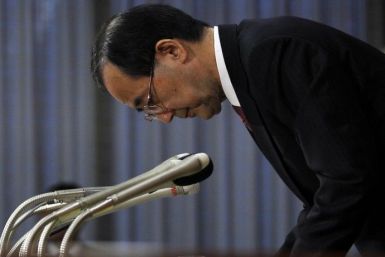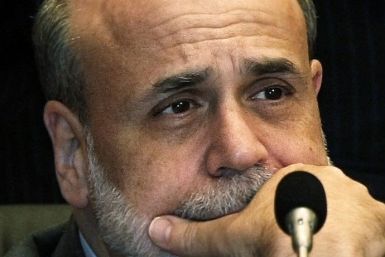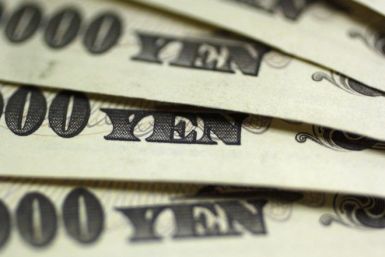The bank of Japan (BoJ) upgraded its economic outlook, taking cues from a strong recovery in exports and industrial output, but refrained from making any change to the monetary policy.
The Bank of Japan raised its assessment of the economy on Tuesday to say it is gradually emerging from a slowdown, further signaling that no imminent monetary easing is on the horizon.
The Bank of Japan raised its assessment of the economy on Tuesday to say it is gradually emerging from a slowdown, further signaling that no imminent monetary easing is on the horizon.
Japan is unlikely to escape from deflation at least through the fiscal year ending in March 2013, prompting the Bank of Japan to stick to its ultra-loose policy, Kazumasa Iwata, former deputy governor of the central bank, said on Wednesday.
Japan is unlikely to escape from deflation at least through the fiscal year ending in March 2013, prompting the Bank of Japan to stick to its ultra-loose policy, Kazumasa Iwata, former deputy governor of the central bank, said on Wednesday.
Japan's economy will emerge from a lull toward spring and is certain to pull out of deflation over time, a Bank of Japan policymaker said, offering an upbeat take on the outlook on budding signs of a recovery.
Japan's economy will emerge from a lull soon and is certain to pull out of deflation over time, a Bank of Japan policymaker said, offering a somewhat upbeat take on the outlook on budding signs of a recovery.
Japan's industrial production dropped during October-December, but will rebound in the current quarter, the Bank of Japan (BoJ) said in its monthly report published on Wednesday.
The Bank of Japan (BoJ) kept its key overnight call rate unchanged at a range of zero to 0.1 percent on Tuesday, assessing that the economic recovery was showing signs of a pause.
Japanese factory output rose for the first time in six months in November and manufacturers expect to boost production in coming months, suggesting that firm demand in Asia will help the economy resume a recovery early next year.
Japan's economic recovery seems to be pausing, though there are signs of a moderate recovery, the Bank of Japan said in a statement on Wednesday.
The Bank of Japan (BoJ) continued to keep interest rates steady between zero and 0.1 percent as the economic recovery seems to be faltering in Japan and the yen grows weaker against the U.S. dollar.
The Bank of Japan kept monetary policy on hold on Tuesday but warned of weakening factory output and business sentiment, assuring markets that it was focusing on downside risks to growth that may trigger further easing ahead.
The Bank of Japan's Tankan business survey showed on Wednesday business confidence among large manufacturers dropped in December, the first decline in seven quarters, and that the prognosis going forward was gloomier.
France and Germany, the two leading countries of the euro zone, may have intentionally engineered a competitive currency devaluation by pushing private investors to share the burden of future sovereign bailouts.
The Bank of Japan (BoJ) Governor Masaaki Shirakawa said on Monday expanding the asset purchase fund could be an option if the economy worsens beyond the central bank's expectations, even as government data showed retails sales in October fell unexpectedly.
Japan's economic recovery showed some positive signs as inflation increased in October for the first time in almost 24 months.
Full-text of speech by Fed Chairman Ben Bernanke at the sixth European Central Bank Central Banking Conference, in Frankfurt, Germany , on Nov. 19, 2010.
Analysts generally think BOJ's intervention was well executed and will perhaps work in the short-run. The long-term effectiveness, however, is uncertain.
To some degree, Japan allowed deflation, or at least they did not choose extremely aggressive policies to fight it. This is largely due to the influence of Japanese constituents who own fixed income, which would devalue in the face of inflation.
Tokyo stocks fell 3 percent on Tuesday, their worst daily drop in three months, after the Bank of Japan's emergency moves the day before failed to curb the yen's strength and disheartened investors bailed out of the market.
The Bank of Japan expanded its cheap loan scheme on Monday, heeding government calls for action to curb a rise in the yen that threatens a fragile economic recovery and leaving the door open to more policy easing.





























